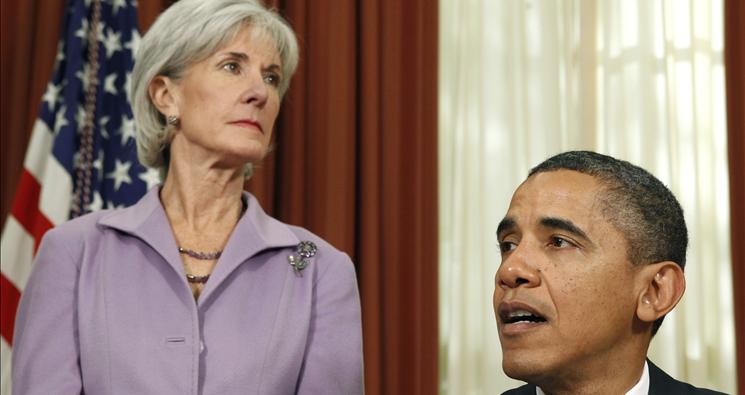Despite Technical Setbacks, Legal Challenges Against HHS Mandate Remain
This week, two cases challenging the HHS Mandate were dismissed by federal courts in Nebraska and Washington, D.C. The HHS mandate is a federal regulation, made possible by Obamacare, that requires employers to include abortion-inducing drugs, sterilization, and contraception in their health insurance plan for employees. The regulation doesn’t just apply to for-profit businesses, it applies to religious hospitals, schools, and charities, whether they object to such services or not.
The case in Nebraska was filed by attorneys general of seven states representing a number of Catholic institutions and individuals, in addition to the states themselves. The case in Washington, D.C. was brought on behalf of Belmont Abbey College, a Catholic college in Charlotte, North Carolina. Each of the challengers in these cases sued the federal government arguing that the HHS Mandate is an illegal and unconstitutional infringement of their rights to religious belief and practice.
It is critical to know what these courts did and did not do. Though the two cases were dismissed, in neither case did the court hold that the HHS mandate is constitutional under the First Amendment’s Free Exercise Clause or is consistent with the Religious Freedom Restoration Act, the federal law prohibiting the government from substantially burdening the free exercise of religion without a compelling governmental interest.
Neither court reached these issues because both courts dismissed the cases on technical grounds only. The courts held that the challengers lacked standing to sue and that the lawsuits were filed prematurely. In the Belmont Abby College case, for example, the D.C. court held that because the federal government is currently seeking ways to accommodate non-profit institutions that object to contraceptive services on religious grounds, the threat to the college’s freedom of religion is not yet immediate. The court explicitly noted, however, that “at the end of the day, the Court offers no opinion on the merits of the current contraception-coverage regulations or any proposed future ones. If Plaintiff is displeased by the ultimate regulations, it may certainly renew its suit at that time.”
The bottom line is that the numerous legal challenges to the HHS Mandate are far from over. First, the decisions out of Nebraska and D.C. are not binding on the other federal courts where legal challenges by religious institutions are still pending. These courts can still rule that the administration’s promise of eventually providing a religious accommodation is simply not enough to warrant dismissal of those cases.
Second, the Nebraska and D.C. decisions are not relevant to the cases involving for-profit businesses whose rights are violated by the Mandate, such as the ACLJ’s case on behalf of a Catholic business owner in St. Louis, Missouri. The administration has given no assurances that businesses with religious objections to the Mandate will one day be accommodated.
Finally, though we await the federal government’s decision on how it will allegedly accommodate religious institutions that object to providing abortion-inducing drugs in their employee health plans, there can be little doubt that any such accommodation will not be worth the paper it’s written on. The administration’s track record on this matter has been clear since day one. It will do everything it can to coerce private employers, whether a religious institution or not, to provide these objectionable services without concern for the strongly held religious views and practices at stake.
The decisions this week are but a minor setback in the ongoing legal fight to protect and preserve conscience rights and religious liberty in this country. We will continue to keep you updated as the nationwide challenge moves forward.
